Enjoy my new series with Records from the Shelves

I started out in the 1960s buying vinyl records and some 78’s. Most of the records I bought at any price because I just had to have them. My mother could send me out with money to buy new trousers, but I came back with a record. In the beginning it was mostly the milestones of classic jazz and records by blues artists alone with guitar, because that was the music that I wanted to play myself.
When the CD’s came in the 90s I bought many recordings again since they were more practical to work with, and they often contained transfers of better originals. Furthermore, you could sometimes get everything recorded by a special artist in chronological order. Today I’m back to buying vinyl again most often because I find them cheap, and thus I can take a chance to listen to music that I may or may not like.
I have made many discoveries over the years. Things that may not be as important to me as the cornerstones of classic jazz but are still enjoyable and that gives me a wider spectrum.
Now I’m going to play a record every day and present a tune with a short comment. Early jazz, blues, modern jazz, operatic arias maybe and some bygone popular artist’s recordings. Let’s listen together, and we’ll see what comes up!
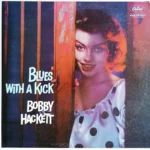 From the Record Shelves #280 – Weary Blues – I’m glad that I’m not a critic. Because in that case, I would have had to deal with the cover, the title of the LP, the choice of tunes, their relation to the blues, and so on. And I might also have gotten into the devastating critic’s habit of (…) read more and listenread more and listen
From the Record Shelves #280 – Weary Blues – I’m glad that I’m not a critic. Because in that case, I would have had to deal with the cover, the title of the LP, the choice of tunes, their relation to the blues, and so on. And I might also have gotten into the devastating critic’s habit of (…) read more and listenread more and listen
 From the Record Shelves #279 – I’ll Be Seing You – For many years, there was a favorite music program on Swedish radio called Smoke Rings. The man behind it was Leif Anderson, and he, even if he may have protested himself, could easily be called an icon (…) read more and listenread more and listen
From the Record Shelves #279 – I’ll Be Seing You – For many years, there was a favorite music program on Swedish radio called Smoke Rings. The man behind it was Leif Anderson, and he, even if he may have protested himself, could easily be called an icon (…) read more and listenread more and listen
 From the Record Shelves #278 After You’ve Gone – For a period when I was about fifteen, I listened to this every day. Same program every morning. My mother woke me up, and after I had been to the toilet and got dressed, she had the porridge ready. Most of the time, I had (…) read more and listenread more and listen
From the Record Shelves #278 After You’ve Gone – For a period when I was about fifteen, I listened to this every day. Same program every morning. My mother woke me up, and after I had been to the toilet and got dressed, she had the porridge ready. Most of the time, I had (…) read more and listenread more and listen
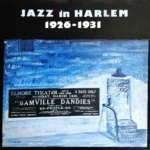 From the Record Shelves #277 – You Can’t Be Mine – The year is 1930, and both the tune and the opening sound point forward in my mind. The tune, because it was recorded a few years later by Billie Holiday, and the sound, because the tune opens with a flute solo (…) read more and listenread more and listen
From the Record Shelves #277 – You Can’t Be Mine – The year is 1930, and both the tune and the opening sound point forward in my mind. The tune, because it was recorded a few years later by Billie Holiday, and the sound, because the tune opens with a flute solo (…) read more and listenread more and listen
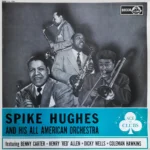 From the Record Shelves #276 – Firebird – Distinguishing the sound of the master and his disciple can be difficult. There are the cases of King Oliver and Dave Nelson (Sweet Liker This), Bix Beiderbecke and Andy Secrest (Raisin’ the Roof), and Louis Armstrong and Red Allen (…) read more and listenread more and listen
From the Record Shelves #276 – Firebird – Distinguishing the sound of the master and his disciple can be difficult. There are the cases of King Oliver and Dave Nelson (Sweet Liker This), Bix Beiderbecke and Andy Secrest (Raisin’ the Roof), and Louis Armstrong and Red Allen (…) read more and listenread more and listen
 From the Record Shelves #275 – I Ain’t Gonna Play No Second Fiddle – Before leaving New York for Chicago at the end of 1925, Louis Armstrong had one last session. The leader was the very busy pianist, composer and manager Perry Bradford, who called his studio band (…) read more and listenread more and listen
From the Record Shelves #275 – I Ain’t Gonna Play No Second Fiddle – Before leaving New York for Chicago at the end of 1925, Louis Armstrong had one last session. The leader was the very busy pianist, composer and manager Perry Bradford, who called his studio band (…) read more and listenread more and listen
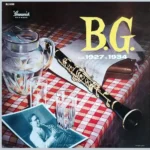 From the Record Shelves #274 – Davenport Blues – When Adrian Rollini got a contract for a session with the newly started Decca Company in October 1934, he had help from his brother Art, the tenor saxophone player, to get together a really good line-up, including (…) read more and listenread more and listen
From the Record Shelves #274 – Davenport Blues – When Adrian Rollini got a contract for a session with the newly started Decca Company in October 1934, he had help from his brother Art, the tenor saxophone player, to get together a really good line-up, including (…) read more and listenread more and listen
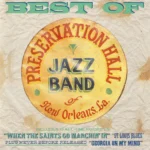 From the Record Shelves #273 – Precious Lord – I listen to a compilation with a band that was assembled by Alan Jaffe and well recorded at Sea Sant Studios in New Orleans at different sessions between 1976 and 1988. The home of the group was, as the name says (…) read more and listenread more and listen
From the Record Shelves #273 – Precious Lord – I listen to a compilation with a band that was assembled by Alan Jaffe and well recorded at Sea Sant Studios in New Orleans at different sessions between 1976 and 1988. The home of the group was, as the name says (…) read more and listenread more and listen
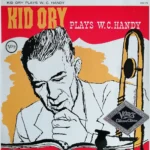 From the Record Shelves #272 – Harlem Blues – Do I like this album? Yes! Do I prefer other earlier versions of the Ory band and other musicians at his side? Yes! But still, I’m glad that he could make a classy and swinging album this late in his life. I think that I have the same (…) read more and listenread more and listen
From the Record Shelves #272 – Harlem Blues – Do I like this album? Yes! Do I prefer other earlier versions of the Ory band and other musicians at his side? Yes! But still, I’m glad that he could make a classy and swinging album this late in his life. I think that I have the same (…) read more and listenread more and listen
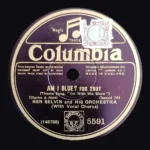 From the Record Shelves #271 – Am I Blue – The orchestra of Ben Selvin has many pages in Brian Rust’s “American Dance Band Discography.” They had an enormous number of sessions between 1919 and 1934. Rust says “I have had the great good fortune to receive some (…) read more and listenread more and listen
From the Record Shelves #271 – Am I Blue – The orchestra of Ben Selvin has many pages in Brian Rust’s “American Dance Band Discography.” They had an enormous number of sessions between 1919 and 1934. Rust says “I have had the great good fortune to receive some (…) read more and listenread more and listen
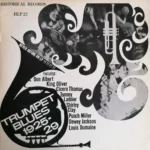 From the Record Shelves #270 – Trouble in Mind – Bertha “Chippie” Hill was a very good singer, and she had a good accompanist in Louis Armstrong, with the result of some classic numbers. But it’s also interesting to hear another quite different version that she did (…) read more and listenread more and listen
From the Record Shelves #270 – Trouble in Mind – Bertha “Chippie” Hill was a very good singer, and she had a good accompanist in Louis Armstrong, with the result of some classic numbers. But it’s also interesting to hear another quite different version that she did (…) read more and listenread more and listen
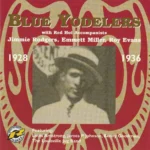 From the Record Shelves #269 – I Lost My Gal from Memphis – This tune is often played at a murderous tempo; at least this is what happens when it comes into the hands of a French jazz band in traditional jazz style. Especially the reed players love to show off their skills (…) read more and listenread more and listen
From the Record Shelves #269 – I Lost My Gal from Memphis – This tune is often played at a murderous tempo; at least this is what happens when it comes into the hands of a French jazz band in traditional jazz style. Especially the reed players love to show off their skills (…) read more and listenread more and listen
